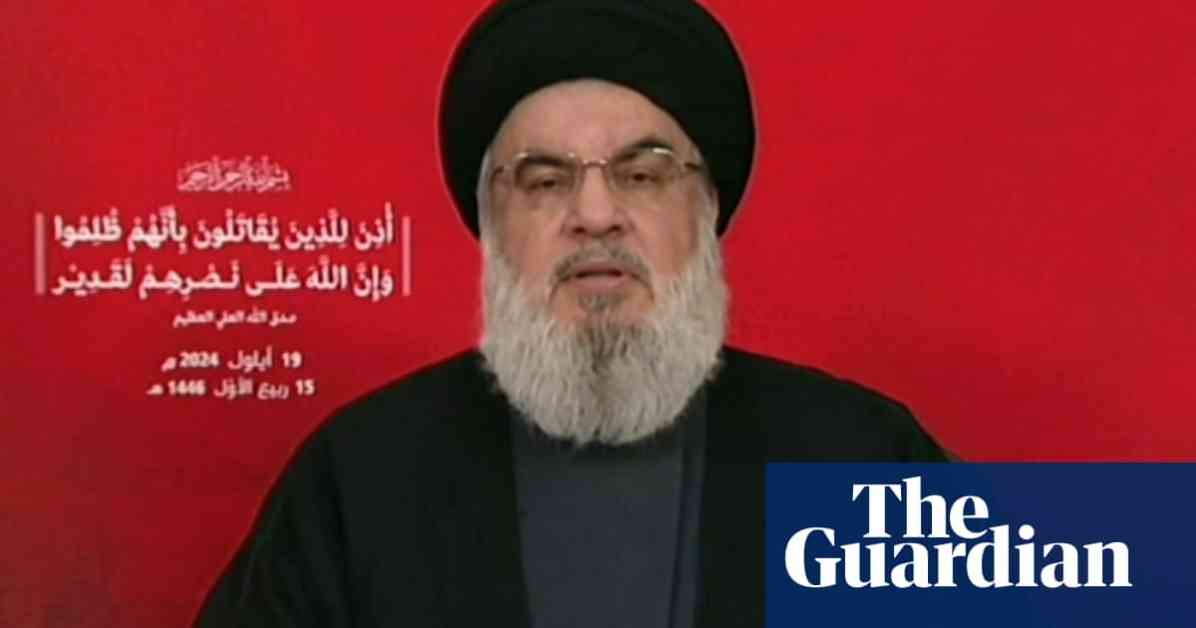Israel’s Bold Move: Hezbollah Leader Hassan Nasrallah Assassinated
In a shocking turn of events, Israel has eliminated Hezbollah’s long-standing leader, Sayyed Hassan Nasrallah, in a series of strikes on the group’s underground headquarters in Beirut. The news was confirmed by both Israel and Hezbollah, marking a significant escalation in the ongoing conflict in the Middle East.
Israeli Defense Forces (IDF) announced the assassination on Saturday morning, following speculation about Nasrallah’s fate after strikes on Hezbollah’s stronghold in Dahieh, a southern suburb of Beirut, the previous day. Hezbollah, backed by Iran, later confirmed Nasrallah’s death, stating that he had “joined his fellow martyrs” and that the group would continue its “holy war against the enemy and in support of Palestine.”
The assassination of Nasrallah, who had led Hezbollah for over three decades, raises questions about the future leadership of the group and its response to the attack. Gunfire rang out across Beirut as mourners commemorated his death, reflecting the impact of his loss on the region.
France also confirmed Nasrallah’s death, with the French foreign ministry stating, “According to the information we have, Hassan Nasrallah, secretary general of Hezbollah, would indeed have died.” The killing of Nasrallah, a significant actor in the Middle East, threatens to reshape the dynamics of the region where he played a key role.
Iran, a staunch supporter of Hezbollah, condemned the assassination and called on Muslims to stand by Lebanon and Hezbollah in confronting Israel. Iran’s supreme leader, Ayatollah Ali Khamenei, emphasized the importance of resistance in the region, with Hezbollah at the forefront of the struggle against Israel.
The Israeli military’s operation to eliminate Nasrallah involved precise intelligence and strategic planning. Reports suggest that F15I jets equipped with bunker-busting bombs carried out the strike on Hezbollah’s central headquarters in Beirut. The IDF stated that the assassination was a targeted response to Hezbollah’s terrorist activities against Israel.
The aftermath of Nasrallah’s assassination has sparked fears of further escalation in the region, with Lebanon on high alert and Israel preparing for potential retaliatory attacks. The Lebanese army deployed throughout Beirut, while Israel mobilized additional reserve soldiers and indicated readiness for a wider conflict.
Hezbollah’s second in command, Hashem Safieddine, is speculated to succeed Nasrallah, raising questions about the future direction of the group. The loss of Nasrallah, a revered figure among Hezbollah supporters, poses challenges for the organization as it navigates a tumultuous period marked by leadership changes and military setbacks.
The death of Nasrallah also raises concerns about the stability of Lebanon, where Hezbollah wields significant influence in politics and security matters. Lebanon’s foreign policy, particularly regarding Israel, is heavily influenced by Hezbollah, further complicating the delicate balance of power in the region.
Despite the assassination of Nasrallah, Hezbollah remains a formidable force in the Middle East, with a history of resilience in the face of adversity. The group’s dedication to its cause and its strong support base suggest that it will continue to pose a threat to Israel and other regional actors.
As the situation in the Middle East remains precarious, with tensions running high and the threat of further violence looming, the assassination of Hassan Nasrallah has added a new layer of complexity to an already volatile region. The repercussions of his death are likely to reverberate across the Middle East, shaping the future of conflict and diplomacy in the region.












